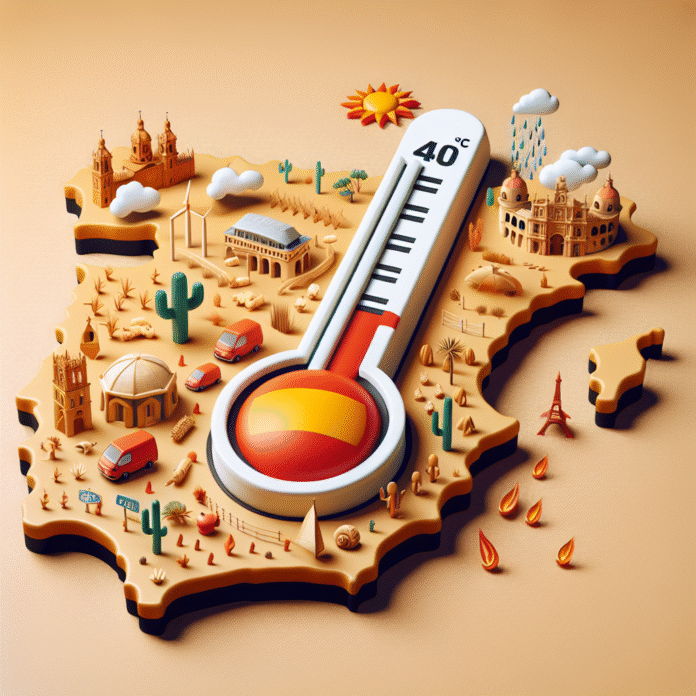Spain Faces Extreme Heat This Week Amid Climate Change Concerns
Temperatures in Spain Set to Soar Past 40°C This Week: Is Climate Change to Blame?
Spain is bracing for an intense heatwave this week, with temperatures expected to exceed 40°C in several regions. This extreme weather event raises questions about the potential role of climate change in contributing to such high temperatures.
The Current Heatwave Situation
Meteorological reports indicate that various areas, particularly in the southern and central parts of Spain, will experience temperatures that could break previous records. The Spanish National Meteorological Agency (AEMET) has issued alerts for multiple provinces, warning residents to take precautions against the oppressive heat.
Understanding the Role of Climate Change
While heatwaves are not a new phenomenon, climate change has been shown to increase the frequency and intensity of such events. Rising global temperatures lead to more extreme weather patterns, and scientists suggest that climate change is a significant factor in the current heatwave. According to the Intergovernmental Panel on Climate Change (IPCC), heatwaves are becoming more common and severe due to human-induced climate change.
Impacts on Health and Environment
Extreme heat poses serious health risks, particularly for vulnerable populations such as the elderly, children, and individuals with pre-existing health conditions. The risk of heat-related illnesses, including heat exhaustion and heat stroke, increases significantly during such high-temperature events.
Moreover, the environmental impact is profound. Prolonged heat can exacerbate drought conditions, threaten agricultural yields, and increase the risk of wildfires. As Spain faces these challenges, it becomes increasingly crucial to discuss sustainable practices and climate resilience strategies.
Looking Ahead: What Can Be Done?
To mitigate the effects of climate change and extreme heat events, experts recommend a range of strategies. Transitioning to renewable energy sources, improving energy efficiency in buildings, and increasing urban greenery can help reduce heat island effects in cities. Additionally, public awareness campaigns about the dangers of extreme heat and the importance of hydration and shelter can save lives.
In conclusion, as Spain prepares for another scorching week, it is essential to recognize the broader implications of climate change. Addressing these challenges requires collective action from governments, communities, and individuals to create a more sustainable future.
